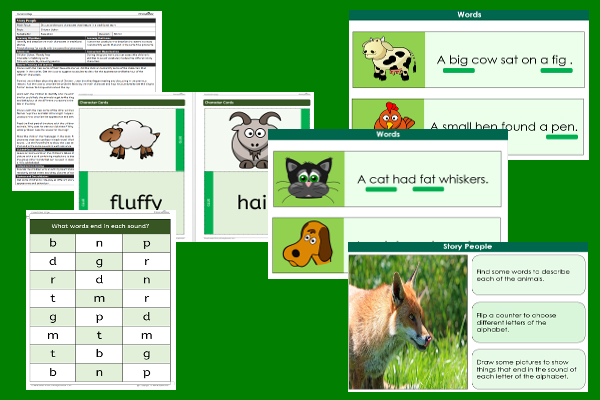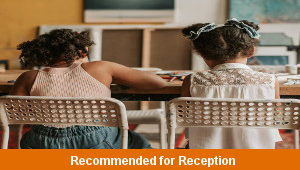Lesson Three – Story People

This literacy teaching pack for the Foundation Stage gets the children to identify and record some of the different words that can be used to describe characters that feature in the traditional story of Chicken Licken.
The class can select and make lists of words using picture clues to match different final phoneme sounds that could be heard in the story.
Download this teaching pack including a lesson plan, classroom activities and an interactive presentation to teach the children to identify and record some of the different words that can be used to describe characters that feature in the traditional story of Chicken Licken
Activities in this teaching pack include a set of cards to identify and record vocabulary words that can be used to describe different story characters and a worksheet to select different letters of the alphabet and record matching objects that end in each phoneme.
The interactive presentation gets the children to explore different words that can be used to describe characters that feature in a traditional story.
This lesson is part of a literacy scheme of work to get the children to identify and change the sequence of events that happen in a traditional story and match a range of different words that rhyme using the same final phoneme. There are teaching activities for shared learning, differentiated worksheets to support independent learning and interactive presentations to introduce concepts and key skills.
-

Length Words
Practise using special vocabulary words to compare the lengths and sizes of objects found and used in different locations
-

Speaking Skills
Explain and model how to use voices clearly and expressively when interacting with others in different situations and scenarios
-

School Friends
Investigate, describe and model some of the special ways of providing practical, spiritual and emotional support to other pupils in the school
-

School Pictograms
Explore how to count and record the numbers of different pieces of school equipment that can be found in trays stored around the classroom
